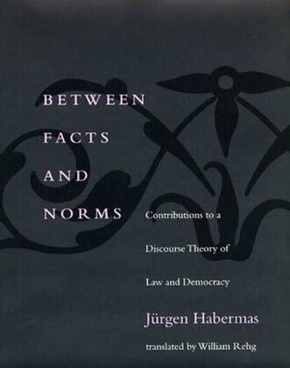Between Facts and Norms - Contributions to a Discourse Theory of Law and Democracy
| Verlag | MIT Press |
| Auflage | 1998 |
| Seiten | 676 |
| Format | 15,2 x 3,2 x 22,8 cm |
| Gewicht | 914 g |
| Artikeltyp | Englisches Buch |
| Reihe | Studies in Contemporary German Social Thought |
| EAN | 9780262581622 |
| Bestell-Nr | 26258162EA |
In Between Facts and Norms, Jürgen Habermas works out the legal and political implications of his Theory of Communicative Action (1981), bringing to fruition the project announced with his publication of The Structural Transformation of the Public Sphere in 1962. This new work is a major contribution to recent debates on the rule of law and the possibilities of democracy in postindustrial societies, but it is much more. The introduction by William Rehg succinctly captures the special nature of the work, noting that it offers a sweeping, sociologically informed conceptualization of law and basic rights, a normative account of the rule of law and the constitutional state, an attempt to bridge normative and empirical approaches to democracy, and an account of the social context required for democracy. Finally, the work frames and caps these arguments with a bold proposal for a new paradigm of law that goes beyond the dichotomies that have afflicted modern political theory from its in ception and that still underlie current controversies between so-called liberals and civic republicans. The book includes a postscript written in 1994, which restates the argument in light of its initial reception, and two appendixes, which cover key developments that preceded the book. Habermas himself was actively involved in the translation, adapting the text as necessary to make it more accessible to English-speaking readers.
Rezension:
[A] fascinating synthesis of Continental and Anglo-American legal theory...full of interesting insights, acute criticisms, and striking passages. Richard A. Posner, The New Republic

